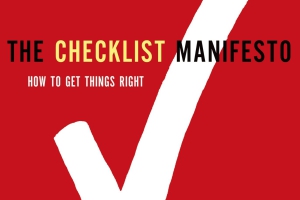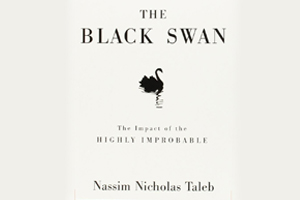Author: Chelsea Fagan
If achieving your financial goals is at the top of your mind in this new year then Chelsea Fagan’s The Financial Diet, which is a fun-filled yet insightful and inspirational compendium of money tips could be exactly what you have been looking for. The guide, which consists of everything from thrifty spending ideas to advice on managing budgeting, saving, investing, and building wealth, can help you meet your finance-based resolutions in a fulfilling and hassle-free manner. To make it an even more interesting read, Fagan’s treatise is packed with hard-earned knowledge on imperatives such as work, home, love, and food making it a complete companion as you travel through the months of the year.
Chelsea Fagan, a prolific writer and editor known for her contributions to Thought Catalog, has amassed millions of page views with her articles. Her writing has been featured in numerous French and American publications, including Grantland, the Atlantic, Slate France, and Le Monde. Presently, she resides in Paris, France. Among her other literary works are titles such as A Perfect Vintage, I'm Only Here for the WiFi: A Complete Guide to Reluctant Adulthood, and Beyond Getting By: The Financial Diet's Guide to Abundant and Intentional Living.
By reading her book, you will realise that while your level of wealth may be determined by your bank account balance, your sense of wealth can be influenced by your surroundings. For instance, while growing up, Fagan never perceived herself as poor, especially living in a low-income neighbourhood in Charlotte, North Carolina, where hand-me-downs and secondhand toys were commonplace. However, when her family relocated to Annapolis, Maryland, her perception changed as suddenly, her classmates' parents owned yachts and she faced ridicule for her non-branded clothing. This experience deeply impacted her relationship with money, leading her to equate financial worth with personal value. A decade later, Fagan found herself struggling with debt and chronic financial instability and she was able to turn her financial situation around only after receiving a significant advance from her first publishing deal. Starting with documenting her budget on Tumblr, Fagan’s platform, The Financial Diet, has evolved into a leading space for women to discuss their financial experiences, marking a decided shift from the financial mistakes she made in her twenties.
Key Takeaways
- Create some money rules for yourself – they may not be perfect but they will help you avoid costly financial mistakes
- It is okay to dream medium size, instead of big, as this will alleviate the financial pressure you find yourself under
- Reduce your food budget by learning to cook for yourself
- Do not give up hope just because you make some financial mistakes
- It is never too late to overcome your money problems and work through your mistakes
- While money does not buy you happiness, it can bring you comfort, security, and the freedom of having options.
It is extremely easy to get caught up in the whirlwind of expenses and blow away your salary/income on purchases which will not aid your budget. It is equally difficult to create an optimised budget and stick to it, while also taking care of imperatives such as saving and investing money. However, with The Financial Diet by your side, the path becomes less onerous and more fun, as you realise you are not alone on this stressful route. Following these tips and taking inspiration from Fagan’s sojourn towards financial wellness can empower you to achieve your own financial goals in a more realistic manner.
Create your own set of ‘don’t you dares’
If you are feeling overwhelmed by financial matters, consider easing into your financial transformation gradually. Remember these four essential "don't you dare" principles, and by adhering to them, you will significantly enhance your financial stability.
Firstly, avoid spending money on credit if you cannot promptly repay it within a month. While credit cards offer perks such as building credit scores and earning air miles, treat them as if they were debit cards. Falling into debt marks the beginning of jeopardising your financial well-being as interest starts accumulating.
Secondly, resist succumbing to the CEO lifestyle. Upon assuming the role of CEO in her own venture, the author experienced a shift in mindset, justifying extravagant expenses with the notion of needing to maintain a certain image. Challenge the notion that specific items are essential for your desired lifestyle, whether it is daily indulgences or luxury transportation. You must always work towards aligning your spending with your budget, not with an idealised lifestyle.
Thirdly, make it a habit to check your bank balance at least twice a week. Similar to avoiding the calorie count of an indulgent treat, many individuals shy away from confronting their financial reality. However, facing your income and expenditure head-on is essential for embarking on a financial overhaul, regardless of how daunting it may seem initially. Lastly, do not assume that savings will spontaneously materialise. It is common to perceive your present and future selves as separate entities, shifting the responsibility of saving onto your future self. While it is tempting to prioritise avoiding debt and postpone savings, recognise that your future financial security hinges on starting to save, even if it is only a small amount, right away.
Embrace the wisdom of Italian grandmothers' cooking
During her teenage years, from 14 to 18, Fagan diligently amassed a savings of USD 10,000 by working throughout high school and stashing away 75% of each paycheck. However, upon gaining full control of her finances, she promptly squandered it on extravagant clothing, dining out, and parties. Upon reflecting on your financial status, you must reconsider your relationship with these expenditures, particularly regarding food. Drawing inspiration from Italian grandmothers, you can adopt a new approach - rather than fixating on specific recipes and splurging on pre-packaged meals and delivery, you can learn to cook with whatever ingredients are available. This shift will enable you to reduce expenses, minimise the stress associated with grocery shopping, and derive greater enjoyment from food. Follow these invaluable tips inspired by Italian grandmothers:
- With basic ingredients like oil, spices, garlic, and onions, you can create simple yet delicious meals using whatever else is on hand, be it two eggs or a selection of slightly wilted vegetables.
- Prepare meals in larger batches rather than cooking single servings. Utilise leftovers for subsequent meals, freeze portions for future consumption, and rotate between two batch-cooked dishes to sustain yourself over multiple days.
- Avoid grocery shopping while hungry, intoxicated, or upset as doing so often leads to impulsive purchases that may result in regret or wasted ingredients.
As you change your relationship with food-related expenses, you will come to the profound realization that food holds significant importance in your life. By learning to savour it without relying on excessive expenditure, you can potentially save thousands of pounds over your lifetime.
Opt for a modest dream while pursuing financial wellness
Amidst a digital landscape teeming with ostentatious Instagram posts, YouTube showcases flaunting millionaires' lavish abodes, and ubiquitous LinkedIn boasts of triumphs, embracing a small-scale approach becomes an act of defiance. On her renowned YouTube channel, even with a substantial one million subscribers, Fagan candidly discusses decluttering clothes, tending to an exotic yet high-maintenance plant, and embracing simple bedding over extravagance. Rather than advocating for excess, she champions contentment with simplicity. Applying a similar philosophy to one's aspirations, you can teach yourself to dream moderately, thereby easing the burden of financial and personal pressures. While ambitious goals are commendable and worthy of pursuit, tempering them with a dose of realism can prove more advantageous than you could ever imagine. For instance, if you are a single parent juggling multiple jobs and student loan repayments, there is no shame in taking each day as it comes until you achieve financial freedom. Subsequently, you can embark on fundraising efforts and launch your entrepreneurial venture. While the realm of possibility is vast, not every opportunity is feasible at any given moment. Therefore, it is essential to discern when to take calculated risks and when to adopt a more cautious approach. Deliberate carefully before making significant life decisions, meticulously planning for the future and remember that, even with modest aspirations, attaining financial goals should still evoke a sense of wonder and accomplishment.
Consider your career as a lattice, instead of a ladder
Throughout her book, Fagan adopts the concept of a career lattice rather than a ladder. While a ladder implies a linear path to success without much room for deviation, a lattice offers flexibility and accommodates unconventional career trajectories – reflecting the realities of modern working life. Fagan’s own journey towards financial stability and career fulfillment was far from a direct route; instead, it resembled a winding road with numerous twists and turns. In her book, she repeatedly encourages readers to embrace change and pursue lateral movements on the lattice, while also offering reassurance and understanding for any sideways steps they may have taken in the past.
Through her book, Fagan shows us that we are never too young or too old to face financial problems. However, instead of wallowing in the financial misery caused by our poor judgement and decisions, we must work towards overcoming the troubles and charting a winsome path towards financial wellbeing. From a teenager learning to manage money to a millennial struggling with debt, The Financial Diet is the ideal handbook for every individual keen on taking control of their financial lives once and for all.
The most interesting part of the book is the narrative which tells you that you are never too young or too old to face financial problems. Thus, the only way to financial wellness is through astute financial planning. However, as is often the case, there can be a significant gap between planning and execution. This is where vehicles like mutual funds can play an important role. Mutual funds offer you an opportunity to invest in a wide variety of professionally managed funds that can give you the desired exposure. More importantly, you can invest in mutual funds via the Systematic Investment Plan (SIP) route that allows you to invest a fixed amount of money, on a periodic basis, in a mutual fund scheme of your choice. This brings a degree of discipline to your financial planning journey and enables you to invest with big or small amounts of money. This way, despite your age or financial status, you can focus on financial planning in a disciplined manner.
An investor education initiative by Edelweiss Mutual Fund.
All Mutual Fund Investors have to go through a onetime KYC process. Investor should deal only with Registered Mutual Fund (RMF). For more info on KYC, RMF and procedure to lodge/redress any complaints – please visit on https://www.edelweissmf.com/kyc-norms
MUTUAL FUND INVESTMENTS ARE SUBJECT TO MARKET RISKS, READ ALL SCHEME RELATED DOCUMENTS CAREFULLY.
Trending Books
MUTUAL FUND INVESTMENTS ARE SUBJECT TO MARKET RISKS, READ ALL SCHEME RELATED DOCUMENTS CAREFULLY.













